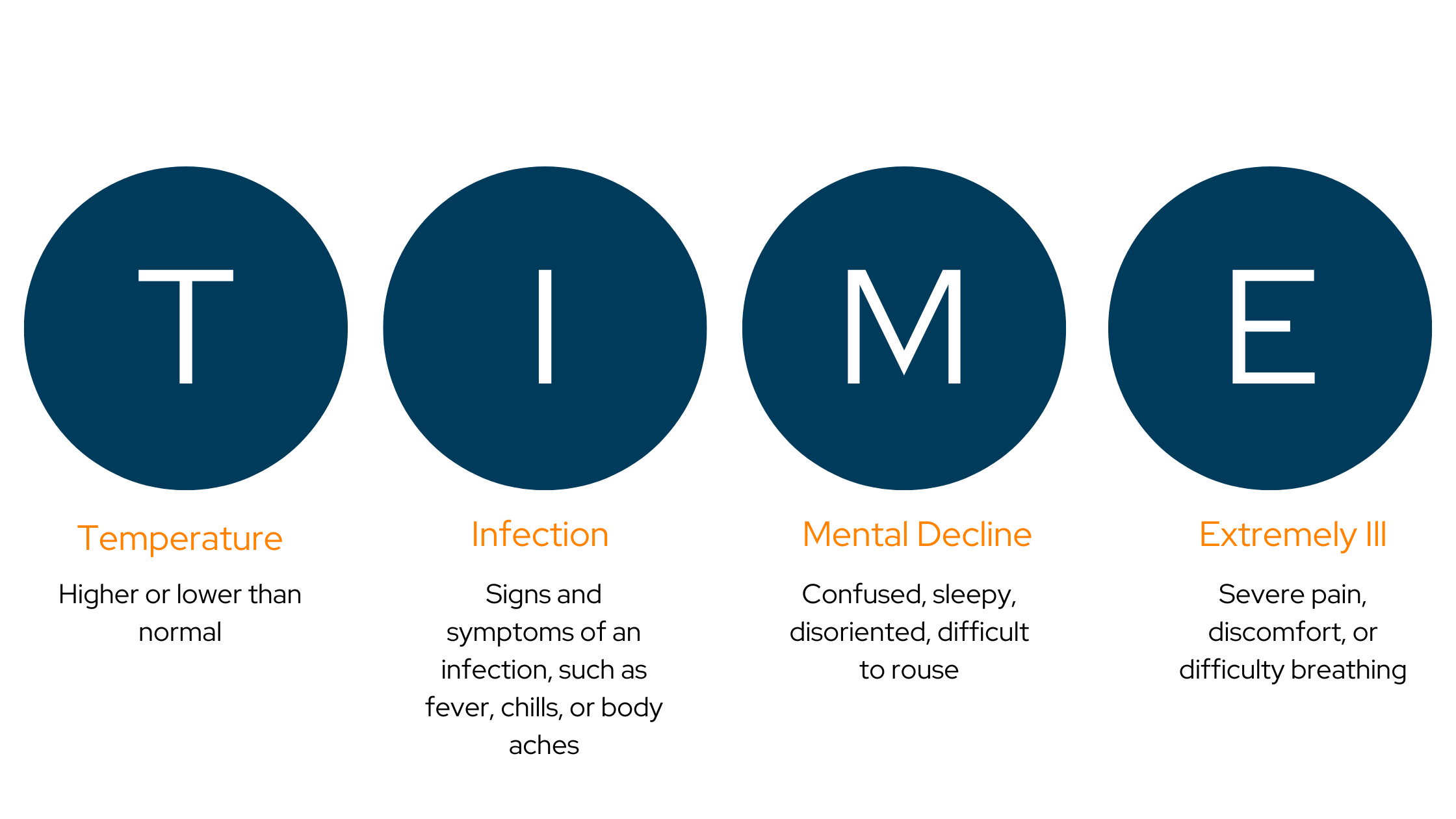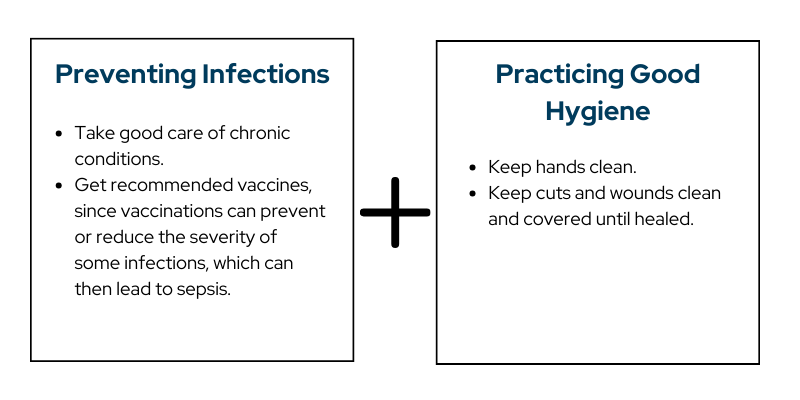September 3, 2024
September is Sepsis Awareness Month: Let’s Get Ahead of Sepsis
by Stephanie Szopa, infection prevention officer at The Elliot
Sepsis is the leading cause of death in U.S. hospitals and takes a life every two minutes.
Sepsis is a life-threatening medical emergency. Sepsis is the body’s extreme response to an infection and can lead to vital organ damage and death. Sepsis occurs when an infection you already have triggers a chain reaction throughout your body. Infections that lead to sepsis most often start in the lung, urinary tract, skin, or gastrointestinal tract. Without timely treatment, sepsis can rapidly lead to tissue damage, organ failure, and death.
Anyone can develop sepsis, but some people are at higher risk such as children younger than one, adults 65 or older, sepsis survivors, those with chronic conditions, or a weakened immune system.
Signs and Symptoms of Sepsis
When it comes to sepsis, it’s all about TIME:

If you or your loved one has an infection that’s not getting better or is getting worse, act fast and get medical care immediately. For every hour that treatment is delayed, the risk of death increases by up to 9%.
Preventing Sepsis
Sepsis can be prevented by Preventing Infections and Practicing Good Hygiene.
At The Elliot, the nursing and medical staff have robust clinical skills that aid in early detection of sepsis. In addition, there are procedures in place to prevent sepsis by utilizing a Sepsis Screening tool to aid in early detection of patients with an increased risk of sepsis. Through this screening tool, our nursing and medical staff can determine if the patient should be under a sepsis watch or alert protocol which brings heightened awareness and is a mechanism to initiate and accelerate patient evaluation and treatment.
Understanding sepsis and its warning signs is crucial for everyone, as early recognition and treatment can save lives. By staying informed about preventive measures and acting swiftly when symptoms arise, we can all contribute to reducing the impact of sepsis and protecting our health and well-being.
If you suspect sepsis, don't hesitate to seek medical help immediately—it could make all the difference.
To learn more about The Elliot, visit www.ElliotHospital.org.

